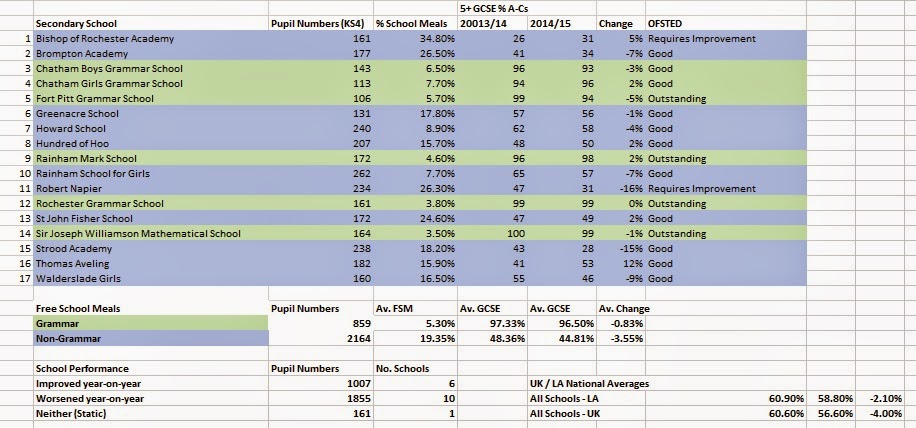When I speak to local parents, one of the most pressing concerns I hear is whether their child is getting the best education possible.
To do this we have to ensure that our children are receiving the high-quality
teaching they deserve in a stable environment.
Yesterday, the three Medway constituencies welcomed our Shadow education secretary Tristram Hunt, who met with concerned parents, teachers and young people from across the three seats
The common message heard throughout is that our Medway Tory Council has failed our young people.
The Tories have now held office now for over a decade and looking over that period we have slipped to close to the bottom of the OFSTED league-table for KS2 and almost 50% of schools are rated 'inadequate' or 'requires improvement'. 2/3rds of our GCSE pupils attending non-Grammar schools are also being let down with results on average 12-14% below the national average. If an administration is to be judged on its ambitions for Education then surely after a decade-and-more of rule this must be seen as a poor score.
When compared with other Authorities including those that saw through the 'London Challenge' in the early 2000s or Coventry today; we have a major challenge locally on how we deal with this challenge. This challenge simply can not be met by those we have in charge at the moment and will require tough short and medium term solutions.
That’s why I’m backing Labour’s plan for an education system
that equips young people with the skills and knowledge they need to succeed in
the future. Our Portfolio Holder, Adam Price, has also set down our positive plan at the Full Medway Council in January. We want better leadership; qualified teachers in our classroom; and an Education Department in Gun Wharf - staffed permanently -that has the resources and single-minded determination to prepare schools for OFSTED.
Labour’s vision for education in this country is very
different from that of the Tories who will cut the education budget as part of
their risky plans to take our public service back to the 1930s, when children
left school at 14 and before the NHS existed.
When Medway Primary Schools are already 150/150th can we afford cuts to our schools?
Unlike the Tories, Labour will not only protect the
education budget but actually increase it so it rises with inflation, ensuring
that we invest in our young people who will drive our future economic success.
Parents are clear that they want smaller classes for their
children and teachers are clear that smaller classes are better for learning.
Yet this government’s education record is one of failure.
They scrapped Labour’s policy to cap infant class sizes at
30 pupils, resulting in a 400% increase in Medway of those in infant classes over 30. In part this
is because of incompetence but also because of a lack of planning over the last five years; the government has belatedly given the Council resources but at what cost, and after how long?
That’s why Labour will end the wasteful Tory policy of
opening Free Schools in areas where there is no need for them. Instead we will
use that money to fund more school places so we can cap class sizes for five,
six and seven year-olds so they are no bigger than 30 pupils.
Labour will take tough action on the scandal of 1.6 million
children educated in under-performing schools. It’s time to put an end to this
chronic under-achievement and make sure that every child, regardless of where
they live, is able to enjoy a high-quality education.
So Labour will issue a new Standards Challenge setting a
tough target to raise performances with every school accountable to new
Director of Standards. We’ll also
ensure all children in state schools are taught by qualified teachers so local
parents will know that their children are getting a high-quality education.
People in Medway and across the country will be presented
with two very different visions for Britain at the election. The Tory vision
focuses on helping a few at the top through tax cuts for the wealthiest, paid
for by reducing public spending to levels not seen since the 1930s.
But a Labour government will invest in our education system
so our children and young people can build the long-term economic success our
country needs.







